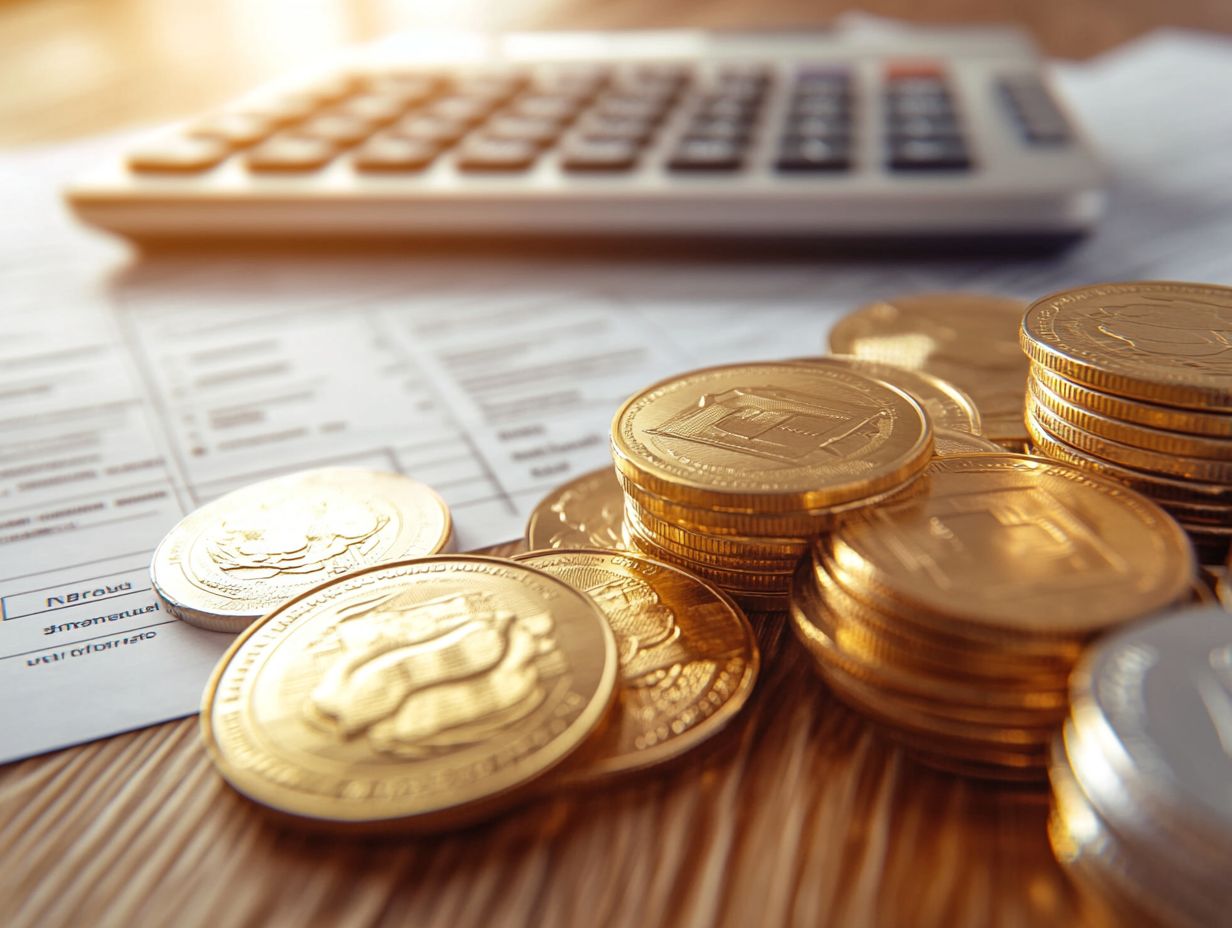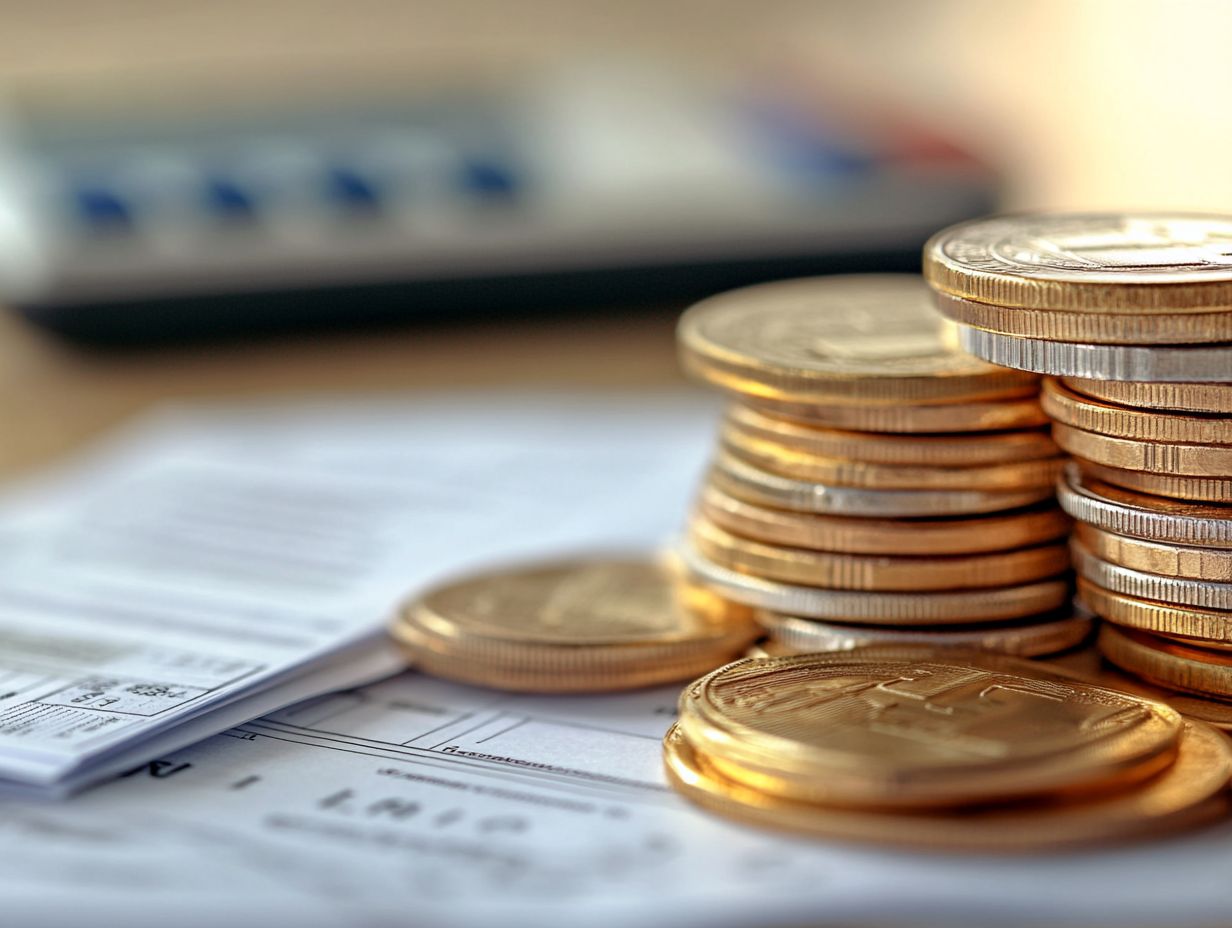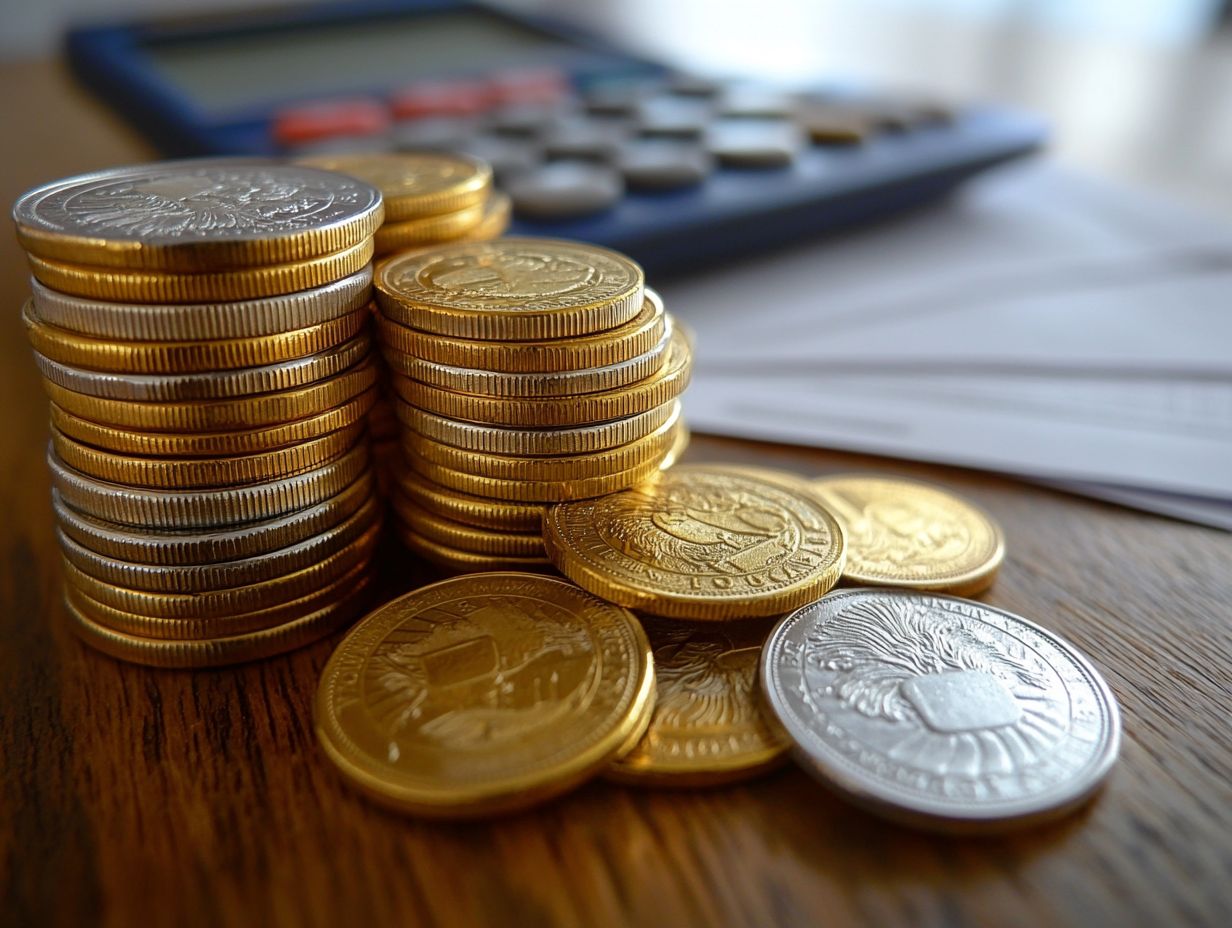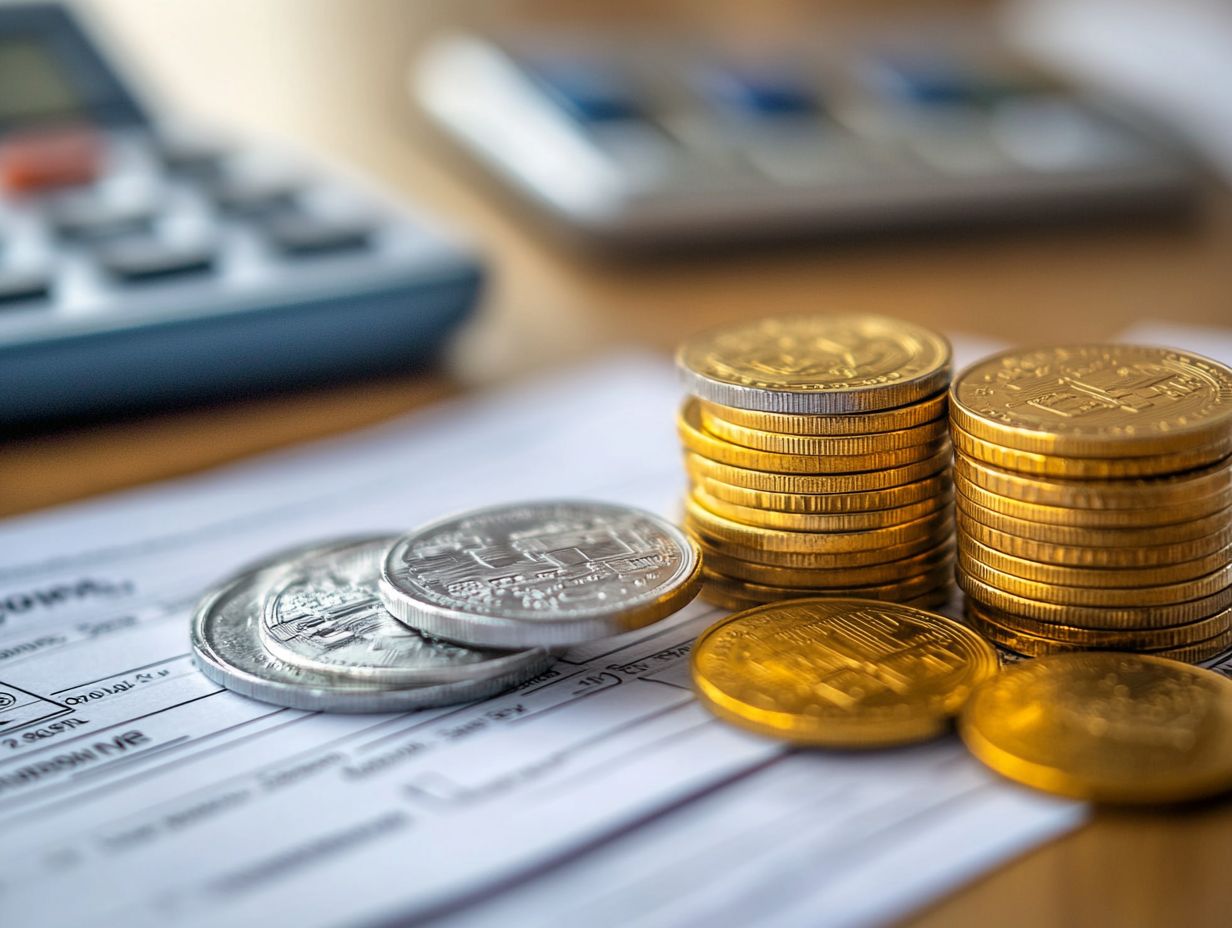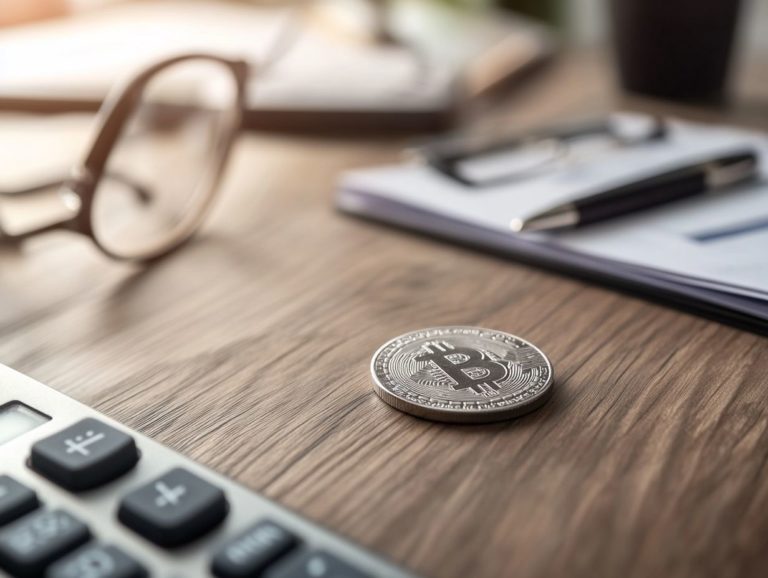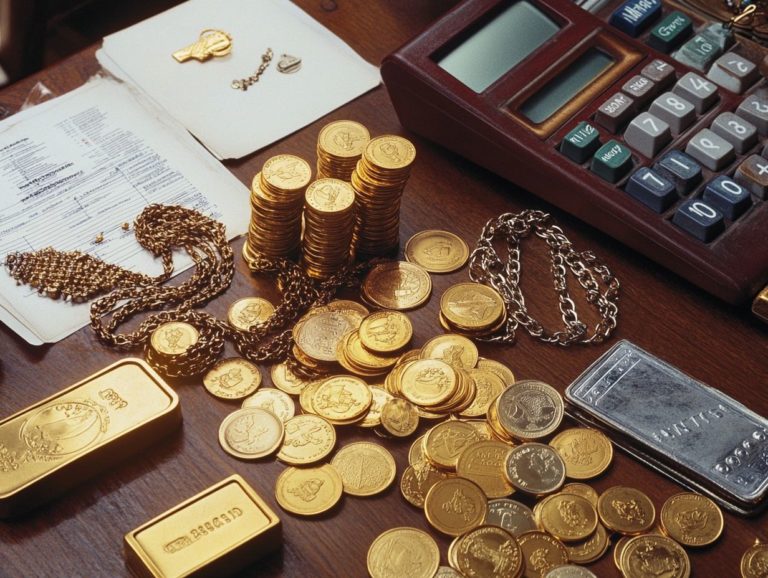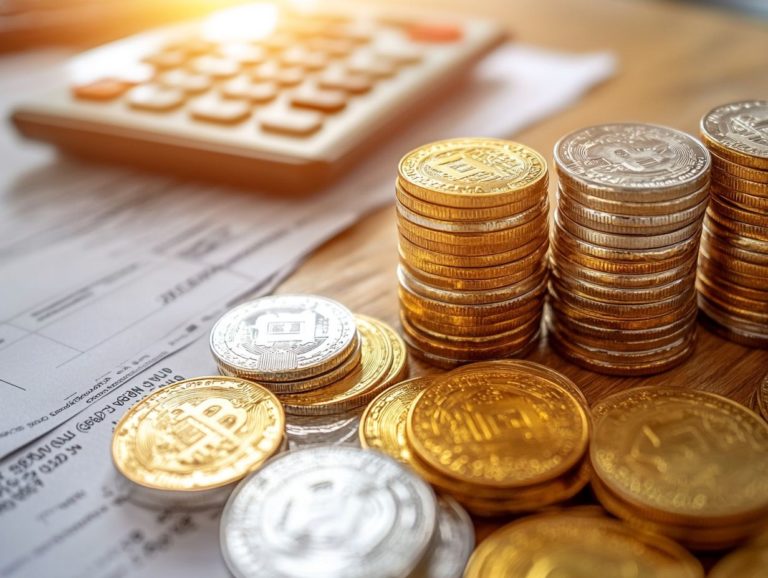Tax Considerations for Importing Precious Metals
Precious metals, such as gold, silver, and platinum, have long captivated individuals with their beauty and investment allure.
As global markets ebb and flow, imagine the possibilities when you import these valuable assets! However, the process is not as straightforward as it may initially appear, particularly when it comes to the associated tax implications.
In this article, you’ll discover the advantages of importing precious metals, the customs duties and taxes you may encounter, and valuable tips to help minimize your tax burden.
Join us as we delve into the intricacies of importing precious metals and unveil strategies that can streamline the process, making it not only smoother but also more profitable for you.
Contents
Key Takeaways:
- Importing precious metals can provide benefits and advantages such as diversifying investment portfolios and obtaining rare metals for collectors.
- Import duties and taxes vary for different types of precious metals and can significantly impact the overall cost of importing. Proper research and planning can help minimize these costs.
- You can reduce your tax burden on imported precious metals by utilizing international trade agreements, bonded warehouses, and considering alternative shipping routes. Bonded warehouses are secure storage facilities where you can keep imported goods without paying duties until they are released.
What are Precious Metals?
Precious metals, such as gold and silver, are naturally occurring metallic elements that carry immense economic value. They have served as investments for centuries.
Their unique qualities—like corrosion resistance and scarcity—render them essential across various industries, including jewelry and electronics. They also act as a safeguard against inflation and economic turbulence. As you explore investment options, consider turning to these precious metals to diversify your portfolio and shield against market volatility.
Often traded in the form of bullion, these metals offer an appealing investment avenue thanks to their tangibility and intrinsic worth.
The economic importance of precious metals is highlighted by their historical role as currency. They continue to be a safe haven during financial upheavals, reinforcing their value even in the face of fluctuating markets.
Why Import Precious Metals?
Importing precious metals such as gold and silver can present a smart investment choice for you. Their market value shifts in response to global economic conditions and fluctuating demand.
As you contemplate investments in these precious metals, it’s wise to explore international markets. Here, you can acquire high-purity items at competitive prices, effectively hedging against inflation and economic uncertainties that may impact domestic markets.
Benefits and Advantages
Investing in precious metals presents you with a wealth of advantages. They act as a reliable hedge against inflation and economic uncertainty, diversifying your portfolio and offering intrinsic value.
The tangible nature of gold and silver allows you to mitigate the risks associated with government-issued currency that is not backed by a physical commodity. Their historical significance as stores of value continues to draw interest from both seasoned investors and newcomers alike.
By weaving these metals into your investment strategy, you can bolster your financial security during periods of market volatility and economic downturns. Precious metals not only provide a layer of stability but also serve as a safeguard against currency devaluation, effectively helping you preserve your wealth.
Their low correlation with traditional assets, like stocks and bonds, means that in turbulent times, they can cushion your losses and potentially lead to significant returns. This versatility and resilience in uncertain financial landscapes highlight why many individuals, contemplating their long-term investment strategies, turn their gaze toward precious metals.
Tax Implications of Importing Precious Metals
When you import precious metals, it’s essential to understand the tax implications related to ownership and transactions, especially those regulated by the IRS. Investing in gold, silver, and other collectibles can trigger potential capital gains taxes, which means you must report them carefully on tax forms like Form 1040 and Form 1099-B.
Staying informed about the tax landscape ensures legal compliance and enhances your financial planning strategy.
Customs Duties and Taxes
Importing precious metals incurs customs duties and taxes that significantly impact the overall cost of your investments. These fees may include Agriculture Infrastructure Development Cess (AIDC) and Basic Customs Duty (BCD), which vary by country and the type of metal imported. Understanding these fees is crucial for calculating total expenses and assessing the profitability of your transactions.
The implications of these costs extend beyond simple calculations; they can influence market trends and shape the investment landscape. The AIDC funds agricultural initiatives, while BCD regulates trade and protects domestic industries. If you’re entering the precious metals market, factor in these duties as they can lower your profit margins and affect your decisions.
Fluctuations in these tariffs can lead to significant shifts in both short-term pricing and long-term value, highlighting the complex economic factors involved in this sector.
Reporting Requirements
When importing precious metals, you must adhere to the strict reporting requirements set by the IRS, which involves keeping meticulous documentation of every transaction. Key forms, like Form 1040 for annual income tax returns and Form 1099-B for reporting capital gains, are essential for compliance.
Understanding how losses can offset gains will enhance your tax planning strategy.
If you engage in this market, familiarize yourself with additional forms and specific documentation needed—like Form 8300 for cash transactions exceeding $10,000. This knowledge can protect you against unexpected tax liabilities and potential penalties.
Keeping detailed records of your imports, including purchase receipts and resale information, isn’t just advisable; it’s essential for substantiating what you report to the IRS. Accurate reporting ensures compliance and supports strategic financial planning, potentially lowering your tax burdens and optimizing your overall investment gains.
Tips for Minimizing Taxes on Imported Precious Metals
Minimizing taxes on imported precious metals is a smart strategy that can boost your overall investment returns and protect your capital. By employing techniques like offsetting losses against gains and leveraging tax-advantaged accounts, you can significantly reduce your tax burdens and maximize your net profits from transactions involving gold, silver, and other precious metals.
Start implementing these strategies today to elevate your investment returns!
Strategies for Reducing Tax Burden
Implementing effective strategies to reduce your tax burden is crucial for maximizing profitability. You can manage capital gains while staying compliant with IRS reporting requirements through careful record-keeping, tax-loss harvesting, and strategic timing of your sales.
By maintaining meticulous records of your purchases and sales, you’ll be able to accurately calculate your basis (the amount you originally paid for the asset) and capture all the deductions you’re entitled to. Tax-loss harvesting allows you to offset gains by selling underperforming assets, effectively lowering your taxable income for the year.
Understanding specific IRS guidelines related to collectibles can reveal opportunities for deferring or eliminating capital gains taxes. Implementing practical tactics enhances your financial outcomes while navigating the complexities of precious metal investments.
Final Thoughts and Recommendations
Engaging in investments in precious metals demands a nuanced understanding of market dynamics and the associated tax implications. By employing informed strategies and maintaining careful records, you can successfully navigate the complexities of importing precious metals while maximizing your returns and minimizing tax liabilities.
Stay updated on global economic indicators and geopolitical events. These can significantly influence precious metal prices. Diversifying within the precious metals sector—by including gold, silver, platinum, and palladium—can also help mitigate risks.
Consider consulting with financial advisors or tax professionals right away to tailor your strategies effectively. Ultimately, a well-researched and proactive approach to precious metals can enhance your overall portfolio stability, aligning seamlessly with your long-term financial goals.
Start applying these strategies today to optimize your investments and reduce your tax liabilities!
Frequently Asked Questions
What are the tax considerations for importing precious metals?
In most cases, importing precious metals into a country will result in the payment of customs duties and taxes. These can vary depending on the type and value of the metals being imported, as well as the country of origin and the destination country.
Are there any exemptions or special tax rates for importing precious metals?
Some countries may offer certain exemptions or preferential tax rates for importing precious metals, particularly for those used in industrial or medical purposes. It is important to research the specific tax laws and regulations of the destination country before importing.
Do I have to pay taxes on precious metals that I am bringing with me while traveling?
In most cases, personal possessions such as jewelry or small amounts of precious metals that are brought with you while traveling are not subject to customs duties or taxes. However, it is always best to check with the customs department of the destination country to confirm their specific regulations.
What is the process for paying taxes on imported precious metals?
The process for paying taxes on imported precious metals will vary depending on the country and the type of metal being imported. In most cases, the customs department will assess the taxes and duties upon arrival and may require you to pay them before releasing the metals to you.
Are there any other fees or charges associated with importing precious metals?
In addition to customs duties and taxes, there may be other fees or charges associated with importing precious metals, such as handling fees or brokerage fees. These will also vary depending on the country and the method of importation.
How Can I Minimize the Tax Implications of Importing Precious Metals?
Want to save on taxes when importing precious metals? Start by researching the tax laws of your destination country. Doing this will empower you to make informed decisions.
Partnering with a trusted customs broker or tax advisor can enhance your strategy. Their expertise will help you navigate the complexities of tax-efficient importing.
Don’t wait until it’s too late—understanding these laws now can save you money in the long run!




